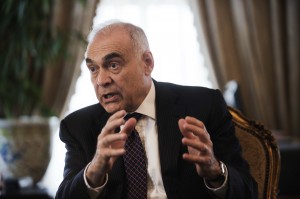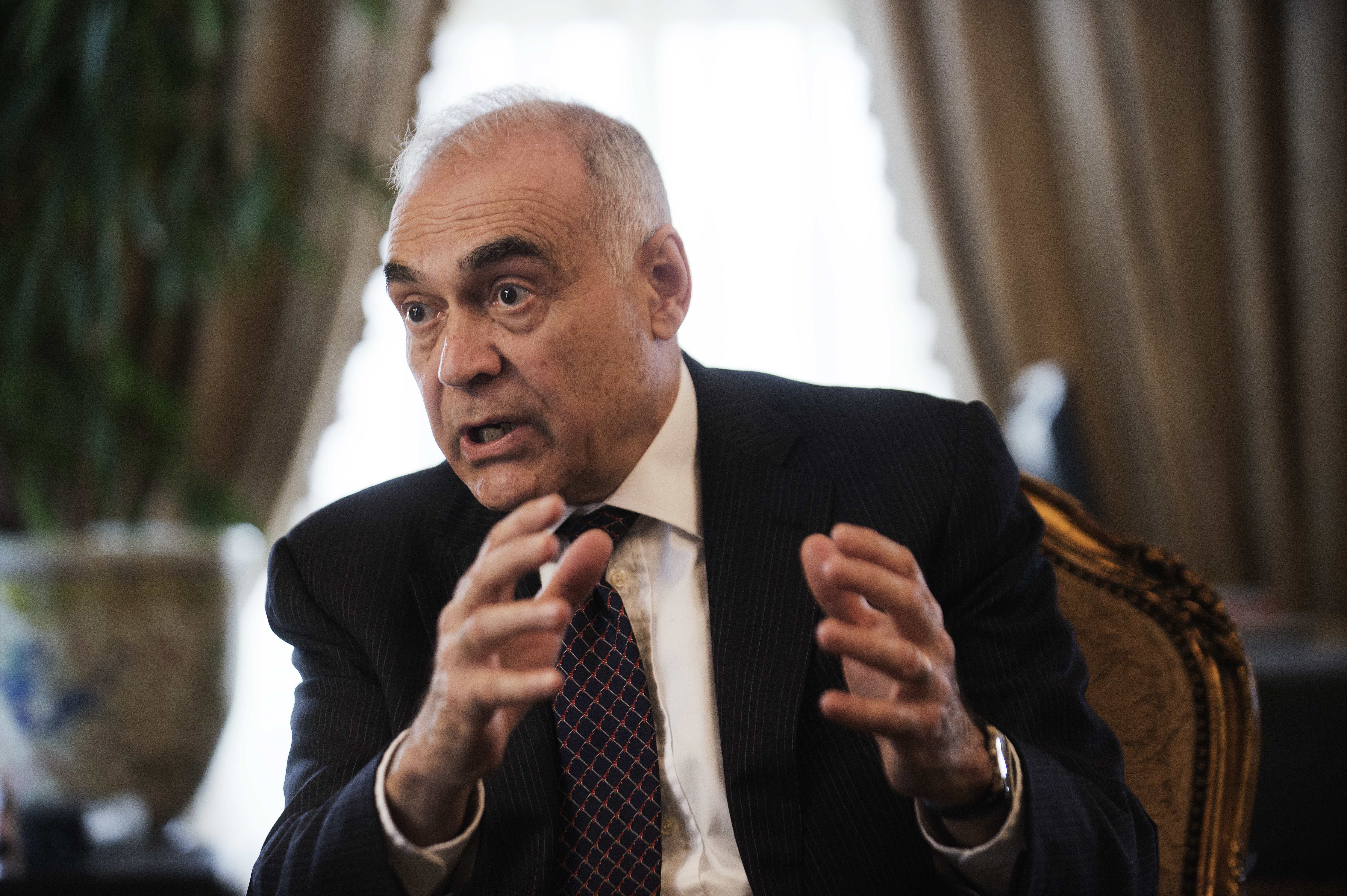
(AFP Photo)
Minister of Foreign Affairs Mohamed Amr received assurances that Egyptian citizens and interests in Iraq will be protected. This follows the murder of two Egyptians in the aftermath of the killing of four Shi’a Muslims in Egypt in June.
Amr contacted his Iraqi counterpart Hoshyar Zebari on Sunday morning and “asked him to take the necessary measures to provide protection for the Egyptians living in Iraq and Egyptian interests there.” Zebari confirmed that the Iraqi government “is committed to providing care and full protection of Egyptian nationals and interests in Iraq.”
A diplomatic source inside the Egyptian ministry confirmed that two Egyptians were killed in two separate incidents in Baghdad over the last five days. The source also said the Egyptian embassy is in close contact with the Iraqi authorities and the ministry is confident that they will cooperate with the Egyptian side.
When asked if the killing of the Egyptians in Iraq is connected to the killing of four Shi’a Muslims in Egypt last week, the source said: “With all the information we have regarding the incident there is a tendency to believe that there could be a connection.”
Sectarian violence between Shi’a and Sunni Muslims is a common occurrence in Iraq. According to the United States Central Intelligence Agency, Shi’a Muslims make up 60%-65% of the population in Iraq, while Sunnis make up 32%-37%.
The United Nations Assistance Mission for Iraq announced in a statement on Monday that 761 people were killed and 1,771 were injured in Iraq as a result “acts of terrorism and violence in June.” The number of deaths fell from 1,045 in May.
Violent attacks between sectarian groups in Iraq rose following the US invasion and the subsequent removal of President Saddam Hussein in 2003. Hussein, a Sunni, oppressed other religious groups during his time in office. Between 2006 and 2008 sectarian violence peaked resulting in the deaths of tens of thousands of Iraqis.

